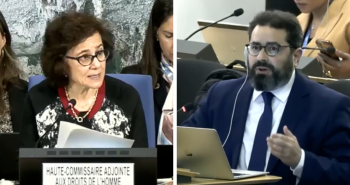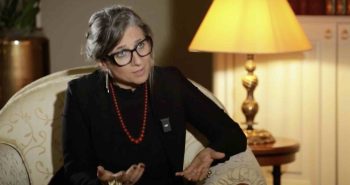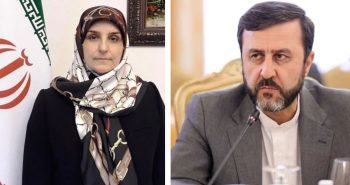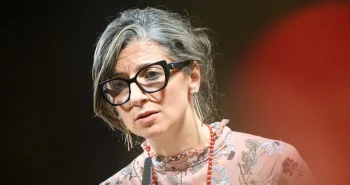| In our last issue, we commented on the impropriety of the nomination of Libya to chair the UN Commission on Human Rights (CHR). In this issue, we describe what happened at the one-day CHR session. Members of the United Nations commission responsible for the promotion and protection of the right to vote were aghast. An election had been called. Press reports on the election of Libya to head the CHR missed the best part of the story: the reaction to an exercise in democracy at the United Nations. An election with a single candidate is not the hallmark of democracy in action, but it sufficed to cause a lot of commotion. The African group, which had nominated Libya, was quite put out by the US move. Given the long history of uncontested elections on that continent, their objection was somewhat surprising. Libya has conducted meaningless single-party elections for over 35 years. What were they worried about? Open debate on Libya’s merits was discouraged. “Silence is golden”, the outgoing chairman reminded the member-states. While the honorable Polish ambassador was just trying to make the best of a bad situation, his comment was in line with the prevailing mood. The European members couldn’t vote for Libya on principle, and wouldn’t vote against the African candidate for political reasons. So they abstained. The voting itself was a sight to behold. A member of the secretariat brought out a wooden ballot box. He walked around the room with the lid open much like a magician at the beginning of his act, showing all present that it was empty. The Sudanese and Syrian ambassadors conferred with each other as the box passed by, probably trying to figure out the purpose of this alien object. Ballots were then passed out to the 53 member states, of whom Freedom House considers 22 “free”, 16 “partly free” and 15 “not free.” With free countries in the minority, the process fit George Bernard Shaw’s definition of democracy: “the substitution of election by the incompetent many for appointment by the corrupt few.” The Polish ambassador explained in simple terms that only one mark should be made on the ballot: yes, no or abstain. He then repeated his instructions, probably for the benefit of the 15 “not free.” The recriminations would have been worse than during the Florida re-count had Zimbabwe, Saudi Arabia, and their non-democratic friends unwittingly invalidated their ballots and prevented Libya from leading the UN’s discussion on human rights. After the ballot box made its rounds, the Commission’s vice-president opened it and started the tally. We then witnessed something new under the sun – a Syrian official counting ballots in a free and fair election. No rabbit emerged, in fact there were no surprises at all. Three countries voted against Libya. The United States and Canada had earlier announced their intentions to vote against Libya. They were joined by an anonymous dissenter. Rumors abound that it was Guatemala. Maybe. Guatemala has consistently and vocally objected to the political manipulation of the Commission, but a public stance against Libya might have invited a retaliatory examination of its own imperfect human rights record during the Commission. It might also have been the Algerian ambassador expressing his indignation at being passed over for the nomination. After taking the chair from the Polish ambassador, the now elected Libyan representative announced that the African group had called for a vote on the candidacy of Australia, the Western group’s nomination for vice-president. According to an arranged script, she then requested the African group to withdraw its motion for a vote, saying “we’ve had enough voting today.” The South African ambassador answered that the African group would accede to her request “in the spirit of cooperation.” End of the experiment in democracy. Should elections be held in other UN bodies, who knows what might happen. Iraq might even lose its scheduled presidency later this year of … (we’re not making this up) … the Conference on Disarmament. | 





